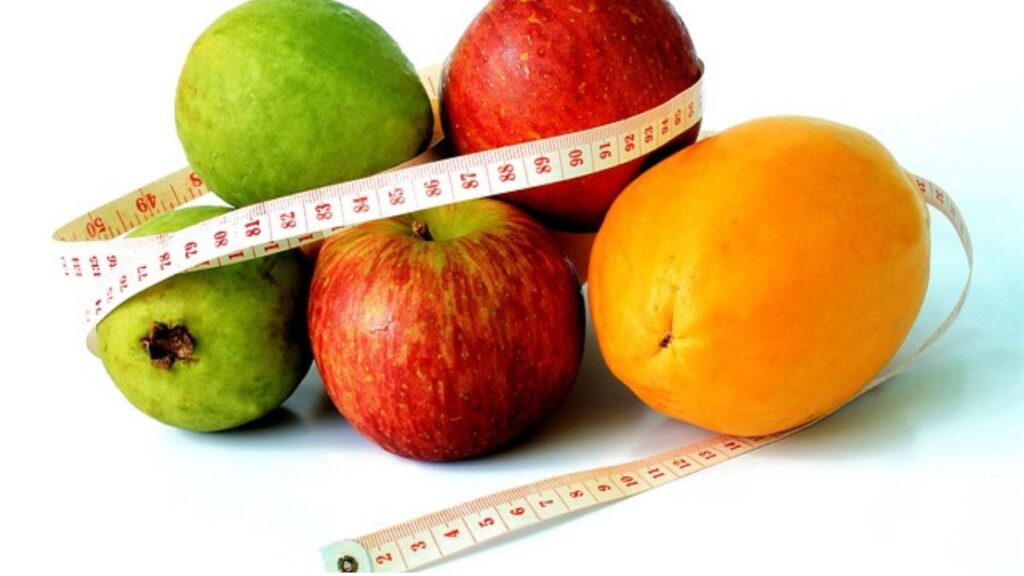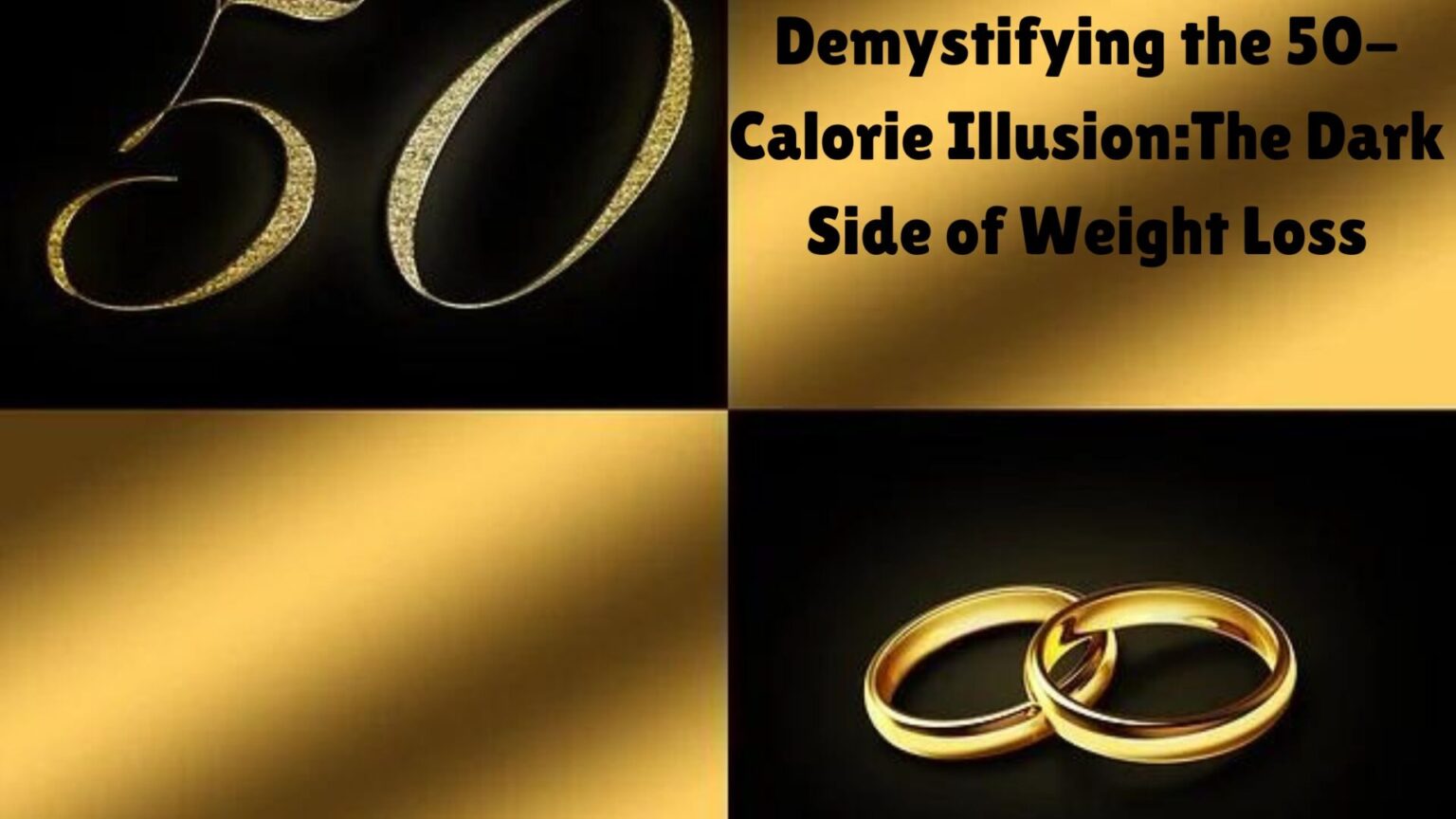Introduction:-

In the pursuit of weight loss, many individuals embark on a journey filled with hopes of attaining a healthier and fitter physique. However, beneath the glitz and glamour associated with shedding pounds lies a dark side that often goes unnoticed. In this article, we will delve into the perils of weight loss, exposing the hidden dangers and debunking the popular 50-calorie illusion. By understanding the risks involved, we can approach our weight loss endeavors with caution and prioritize sustainable well-being.
What are the hidden dangers of weight loss and how can we debunk the popular 50-calorie illusion? By understanding these perils and risks, how can we approach our weight loss endeavors with caution and prioritize sustainable well-being?
- The Dangers of Rapid Weight Loss :While rapid weight loss may seem appealing, it can have detrimental effects on our physical and mental health. Sudden, drastic changes in calorie intake and extreme dieting practices can lead to nutritional deficiencies, muscle loss, weakened immune function, and even organ damage. Additionally, rapid weight loss often results in the dreaded “yo-yo effect,” where lost pounds are regained just as quickly, creating a cycle of frustration and disappointment.
- The Impact on Mental Health :Weight loss journeys can take a toll on our mental well-being. The pressure to achieve societal beauty standards, the constant obsession with calories, and the comparison to unrealistic body ideals can lead to body dissatisfaction, low self-esteem, and disordered eating patterns. It is essential to prioritize mental health alongside physical health when embarking on a weight loss journey.
- Demystifying the 50-Calorie Illusion :The notion that cutting 50 calories a day will lead to significant weight loss over time has permeated popular culture. However, this 50-calorie illusion can be misleading. While small dietary changes are beneficial for overall health, weight loss requires a more comprehensive approach that encompasses a balanced diet, regular physical activity, and lifestyle modifications.
- The Importance of Sustainable Approaches : Instead of focusing solely on rapid weight loss, adopting sustainable approaches is crucial for long-term success. Aiming for gradual weight loss, incorporating balanced and nutritious meals, engaging in regular physical activity, and fostering a positive relationship with food and body are key components of a sustainable weight loss journey.
- Prioritizing Overall Well-being : Weight loss should not be the sole determinant of our well-being. Instead, it is essential to prioritize overall health and well-being. This includes embracing body diversity, cultivating self-acceptance, nourishing our bodies with wholesome foods, and engaging in activities that promote physical and mental wellness.
Is it right to take only 50 calories? What can be its side effects in the body after a long time?
Eating only 50 calories per day is an extremely low intake that can have severe negative consequences for the body, especially if sustained over a long period. Such extreme caloric restriction deprives the body of essential nutrients, leading to malnutrition and various side effects. Some potential long-term side effects of prolonged low-calorie intake include:

- Nutritional deficiencies: Inadequate calorie intake hampers the body’s ability to obtain essential nutrients such as proteins, vitamins, minerals, and fats, leading to deficiencies that can impair bodily functions.
- Muscle wasting: Insufficient calories deprive the muscles of energy and nutrients, leading to muscle breakdown and loss of strength.
- Slowed metabolism: When the body is consistently deprived of calories, it tries to conserve energy by slowing down the metabolic rate, which can make weight loss more difficult in the long run.
- Weakened immune system: Nutritional deficiencies weaken the immune system, making the body more susceptible to infections and illnesses.
- Hormonal imbalances: Severely restricted calorie intake can disrupt hormone production and regulation, leading to irregular menstrual cycles (in women), decreased libido, and other hormonal issues.
- Reduced bone density: Inadequate calorie intake can lead to reduced bone mineral density, increasing the risk of osteoporosis and fractures.
- Mental health issues: Chronic calorie restriction can contribute to mood swings, irritability, anxiety, and even depression.
It’s important to maintain a balanced and nutritious diet to support overall health and well-being. Consulting with a healthcare professional or a registered dietitian can provide personalized guidance based on individual needs.
Which myths should be avoided and what formula should be adopted for weight loss?

When it comes to weight loss, it’s important to be aware of common myths and focus on evidence-based strategies. Here are some myths that should be avoided:
- Crash diets: Rapid weight loss diets that severely restrict calories are often unsustainable and can lead to nutrient deficiencies, muscle loss, and rebound weight gain.
- Spot reduction: The idea that you can target specific areas of the body for fat loss through exercises or specific foods is a myth. Weight loss occurs throughout the body and is influenced by overall calorie balance.
- Detox cleanses: Cleanses or detox diets claim to eliminate toxins and promote weight loss. However, our bodies have natural detoxification systems, and these diets are typically low in essential nutrients.
- Magic pills or supplements: Beware of weight loss supplements claiming to provide quick results without diet or exercise. Sustainable weight loss requires a balanced approach, and no pill can replace healthy lifestyle habits.
Instead of falling for these myths, it’s advisable to adopt a balanced approach to weight loss:
- Calorie balance: Achieving a calorie deficit by consuming fewer calories than you burn is key for weight loss. However, extreme restrictions should be avoided. Aim for a moderate calorie deficit, typically 500-1000 calories per day, to promote sustainable weight loss.
- Balanced diet: Focus on a well-rounded, nutrient-dense diet that includes a variety of fruits, vegetables, lean proteins, whole grains, and healthy fats. Portion control and mindful eating can also be beneficial.
- Regular physical activity: Combine a healthy diet with regular exercise to support weight loss and overall health. Aim for a mix of cardio exercises, strength training, and flexibility exercises.
- Slow and steady progress: Sustainable weight loss is a gradual process. Aim to lose 1-2 pounds per week, as this allows for more sustainable lifestyle changes and minimizes muscle loss.
- Seek professional guidance: If you have specific health concerns or need personalized advice, consult with a healthcare professional or a registered dietitian who can provide tailored recommendations based on your individual needs and goals.
Remember, the key is to focus on long-term habits that promote overall health and well-being, rather than quick fixes or restrictive approaches.
Conclusion:
While weight loss may be a common goal, it is vital to unveil the perils that lie beneath the surface. By understanding the dangers of rapid weight loss, demystifying misleading notions like the 50-calorie illusion, and prioritizing sustainable well-being, we can approach our weight loss endeavors in a healthier and more balanced manner. Remember, achieving a healthy weight should not come at the cost of our physical or mental health, but rather through nurturing and caring for our bodies in a holistic and sustainable way.
READ MORE






